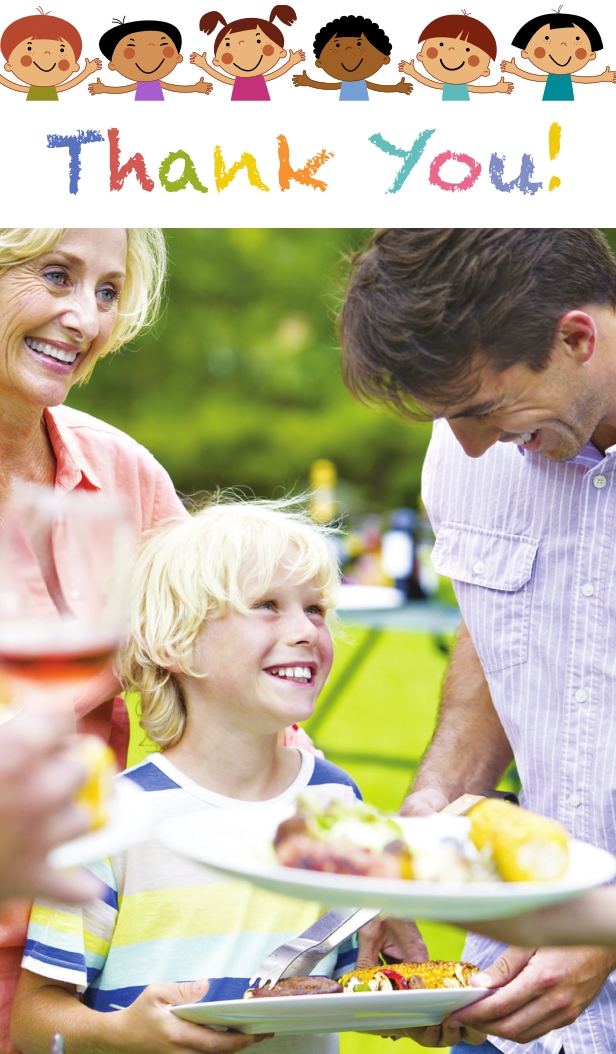
A natural way of life
November is a time when we begin to think about Thanksgiving and begin to find answers to these questions: “Where will we eat our thanksgiving meal?” “Whom will we invite?” Thanksgiving holidays may mean parents choosing to opt for staying home and getting together with family or taking a short family vacation away from home while the children are out of school.
But whatever parents choose to do during the Thanksgiving season, parents should consider using it as a time to begin to teach gratitude. Thanksgiving is a time to be thankful and grateful, and something that should be carried out the whole year through.
Gratitude can and should become a natural way of life.
Because gratitude plays a large role in an adult’s well-being and future success and because gratitude has been linked to adult-life satisfaction, we need to help our children learn to how to have a grateful attitude. We should teach them this attitude until it becomes a natural way of life. When it does become a natural way of life, our kids will more likely have a satisfying and fulfilled adult life.
Children ages 11-13 are found to have an optimistic outlook and be happier in general when they have a grateful outlook. They seem to be more satisfied with school, family, community, friends and themselves. Children who are grateful offer more emotional support to others in their world.
How can we teach gratitude to our children? Model gratitude Parents provide the “design,” the “outline,” the “plan” for expressing and showing gratitude. Take a moment to assess your gratitude barometer – what attitudes are your children “catching” as they see your attitudes at work? What attitudes should your kids be “catching?” Let your children see you expressing gratitude through your words or actions as you thank someone who has done something nice for you.
Ask your children to help you pick out a small gift for someone who has helped you in some way or for someone who has helped them in any way.
Show politeness and appreciation for all persons helping you as you do errands, purchase groceries, etc. Spend time with your children Spend uninterrupted time with your children – that means: Time minus the cell phone. Uninterrupted time tells children they are important and teaches them about real, genuine love. This kind of relationship fosters gratitude and appreciation for the caring people in our lives. Support your child’s independence Give your child space to make decisions within reason; give guidance as needed using a democratic style in which you lend support or give advice as he makes decisions. Know your child’s strengths Appreciate your child for the person he is as you lead and guide him. This teaches him in turn to have gratitude for others and will lead your child to learn to support others.
Harmony in the home makes for more independent and grateful children.
Let your child hear you pray for him and for others. Encourage your child to pray for himself and for others and to voice his gratitude in his prayers. Help children to focus on deep, genuine goals Steer children to pursue goals that focus on developing deep connections with others rather than goals that pursue materialistic possessions.
Encourage children to thank those who have helped them along the way to meet their own goals through a handwritten note or in person.
Encourage children to help others and develop relationships.
Helping others and being generous are two of the key ingredients for developing grateful children. When children help others, especially while using their strengths, they feel more connected to those they are helping. This helps develop and nurture friendships and social relationships.
Through your own actions you can encourage children to be thoughtful of others, to be thankful for others and to be helpful and giving, if you are doing these things yourself. Find out what matters to your child The greatest gains in life come from connecting to a bigger picture, something that matters and contributes to society.
Help your child connect with an issue he cares about. Help him decide on a project he can do and/or ask others to join him in doing.
Society as a whole has long-past become so “me” centered that time spent in appreciating others seems to be lost. Gratitude has to be modeled and taught for it so exist. Society gains in many ways when we appreciate and have gratitude for one another. Children grow into thankful, grateful adults that have a more satisfying and fulfilled adult life when gratefulness becomes a natural way of life for them.